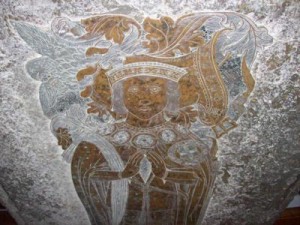 On this day in history, 29th June 1536, just over a month after the executions of his children, Queen Anne Boleyn and George Boleyn, Lord Rochford, Thomas Boleyn, Earl of Wiltshire, was stripped of his office of Lord Privy Seal.
On this day in history, 29th June 1536, just over a month after the executions of his children, Queen Anne Boleyn and George Boleyn, Lord Rochford, Thomas Boleyn, Earl of Wiltshire, was stripped of his office of Lord Privy Seal.
Three days later, the office was granted to Thomas Cromwell, the man who had been responsible for the legal machinery used to bring down Wiltshire’s son and daughter.